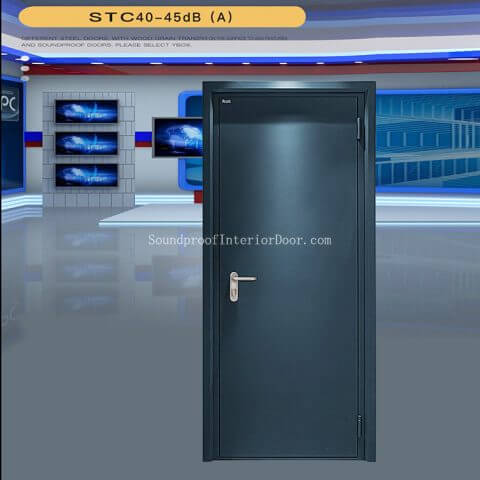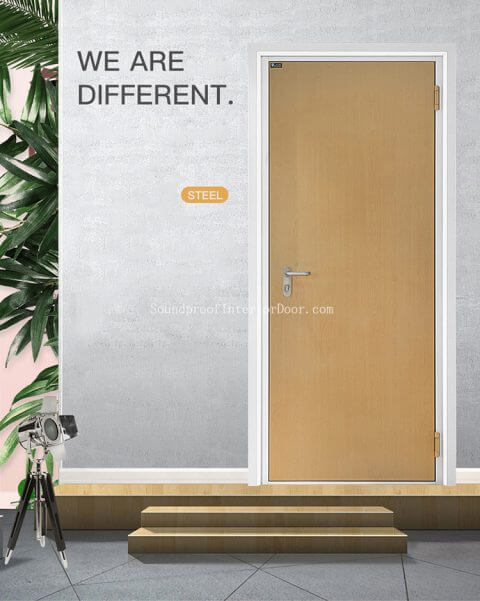Table of Contents
I. Introduction
II. Understanding Studio Soundproofing
III. Types of Studio Doors
IV. Soundproofing Materials for Studio Doors
V. Factors to Consider when Choosing Studio Doors
VI. Conclusion
I. Introduction
In music production and recording, creating an ideal and controlled environment is absolutely crucial to producing high-quality audio output. One key element that helps accomplish this objective is soundproofing; soundproofing prevents outside noise from interfering with recording sessions for optimal audio output. And when it comes to soundproofing a studio, one component that stands out is the acoustic studio door.
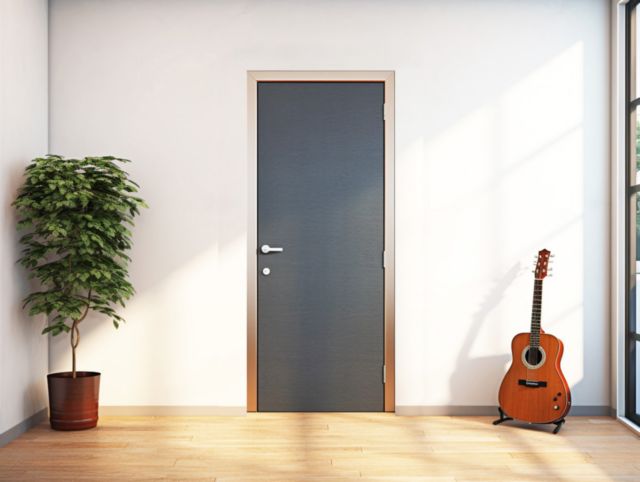
II. Understanding Studio Soundproofing
Before diving deeper into studio doors, it’s essential to understand soundproofing basics. Soundproofing involves building barriers with materials designed to block or absorb sound waves; this helps minimize transmission of noise between spaces. By employing soundproofing techniques in the studio space, unwanted external noises can be reduced for a more balanced acoustic environment.
Maintaining a soundproof studio poses unique challenges. One such challenge lies in managing external noise sources like traffic, construction sites or neighboring rooms; their noise can seep in and affect both recording processes and sound quality negatively. Internal studio noise generated such as equipment hum or HVAC systems must also be effectively managed to ensure an ideal recording environment.
Advantages of Soundproofing Solutions
Investment in soundproofing solutions such as recording studio doors can bring many distinct advantages. First and foremost, soundproofing helps create a distraction-free environment for musicians and recording artists alike, enabling them to focus solely on their craft without external noises interfering. Furthermore, soundproofing ensures audio recordings produced are of top-quality recordings without interference or unwanted background noise – an especially essential quality check in professional studio environments that strive to produce top recordings. Finally, soundproofed studios increase both creativity and productivity by providing comfortable spaces conducive for creativity and productivity alike.
Now that we understand soundproofing in studio environments, let’s examine how doors studio contribute to optimal sound isolation and control.
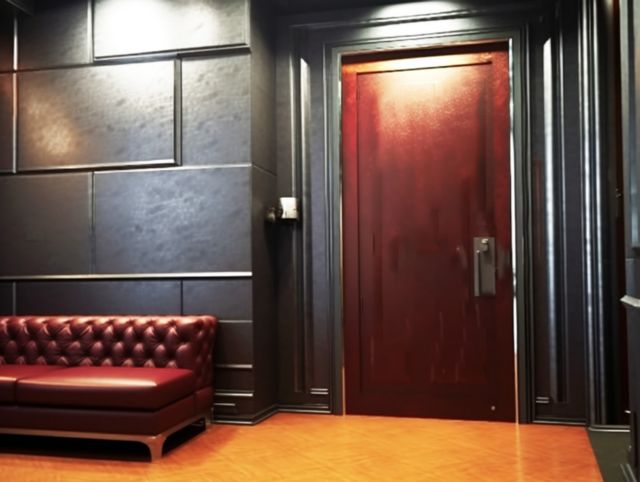
III. Types of Studio Sound Proof Doors
When selecting the appropriate doors for recording studio for soundproofing purposes, there are various considerations. Let’s examine two popular types: wooden studio sound proof doors and steel acoustic studio doors.
A. Wooden Studio Doors
Features and Advantages:
Wooden studio doors soundproof are known for their natural aesthetic appeal and solid construction, offering excellent sound insulation properties that effectively block out external noise. Furthermore, these wooden music studio doors can be customized to fit specific studio needs seamlessly allowing seamless integration into studio designs.
Considerations for Installation and Maintenance:
When installing wooden acoustic doors for studios, it is critical to ensure proper sealing to prevent gaps that could compromise soundproofing performance. Regular inspection for signs of wear or damage as well as proper care such as periodic sealing or refinishing can extend their lifespan significantly.
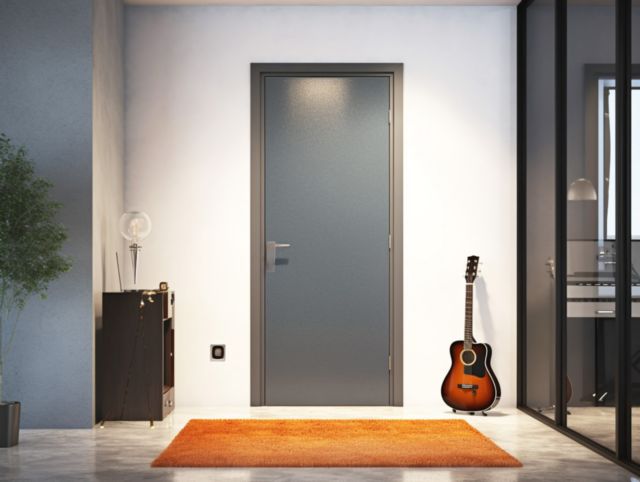
B. Steel Studio Doors
Features and Advantages:
Steel sound studio doors are highly durable and provide excellent soundproofing properties, due to the solid steel construction that insulates against external noise sources. Often fire-rated as an added layer of safety in studio spaces, steel recording studio doors also resist warping or bowing for long-term stability and reliability.
Considerations for Installation and Maintenance:
Steel sound proof doors for music studio require professional expertise due to their weight and structural requirements, in order to install properly with regard to soundproofing performance. During installation it is crucial that proper seals and weatherstripping be in place for maximum soundproofing performance. Maintenance tasks usually consist of regular cleaning, lubricating hinges and inspecting for signs of corrosion or damage.
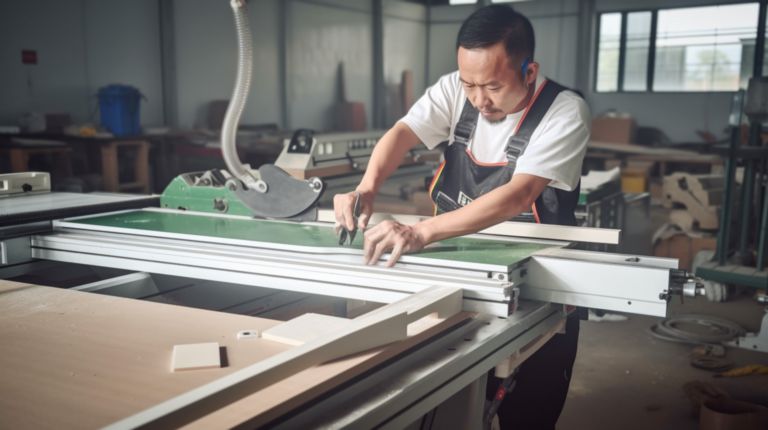
IV. Soundproofing Materials for Studio Doors
How to make doors soundproof? To increase the soundproofing capabilities of doors for studio, various studio soundproofing materials may be added. Here are some popularly utilized materials:
Acoustic Seals and Gaskets:
Acoustic seals and gaskets are designed to create an airtight seal around the edges of doors, blocking out external noise while improving soundproofing performance. They effectively block out external noise, improving overall soundproofing capabilities of doors.
Soundproofing Foam and Panels:
Soundproofing foam and panels made of materials like acoustic foam or fiberglass help absorb and dampen sound waves, helping reduce reflections on interior doors while increasing soundproofing capabilities. These materials may be applied directly onto their surfaces for optimal effect.
Mass-loaded vinyl (MLV) barriers:
MLV barriers are dense sheets of vinyl designed to block sound transmission. These barriers can either be integrated directly into door structures, or used as an additional layer to enhance soundproofing performance.
Automatic Door Bottom Seals:
These seals can be installed at the base of doors to automatically lower when closed and create a tight seal around their perimeter, helping reduce sound leakage through any gaps at the base of doors to further enhance soundproofing efforts.
By integrating soundproofing materials into the construction or modification of studio door soundproofing, isolation and control within the studio can be significantly increased.
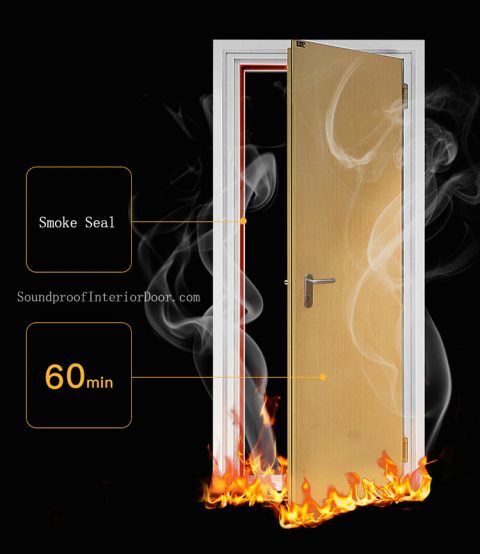
Soundproof Door for Studio
Soundproof Doors For Studio Sound Proof Studio Doors Soundproof Doors For Recording Studio
V. Factors to Keep in Mind when Selecting Studio Doors
When selecting recording studio sound proof doors to meet your soundproofing needs, several important considerations must be kept in mind. These factors can have an enormous effect on their performance and functionality as soundproofing solutions.
Sound Transmission Class (STC) rating:
The Sound Transmission Class (STC) rating measures the ability of doors to block sound and reduce levels of noise pollution, and higher ratings indicate better soundproofing abilities. It is wise to opt for home recording studio doors with higher STC ratings in order to achieve noise isolation effectively.
Door Thickness and Construction:
Door thickness and construction play an integral part in soundproofing, particularly thicker doors with multiple layers or solid core construction providing better acoustic insulation. Materials used in its construction – solid wood or steel for example – also help improve its soundproofing properties.
Airtightness and Sealing Capabilities:
Airtightness is of vital importance in order to limit sound leakage from retro studio doors, so proper sealing mechanisms such as seals, gaskets or weatherstripping must be in place in order to create an airtight seal when closed and reduce sound transmission through gaps or cracks in the door frame.
Fire Safety Requirements:
When selecting recording studio doors for sale, it is crucial to take into account local fire regulations. Fire-rated studio soundproofing products provide extra layer of protection. Be sure that any doors you select meet with all necessary fire safety standards.
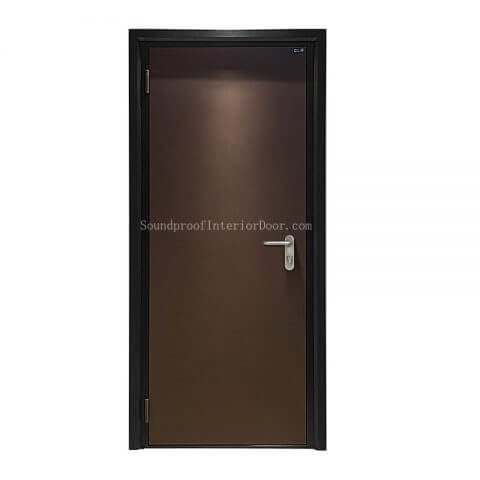
Soundproof Studio Door
Soundproof Studio Door Sound Proof Doors For Recording Studios China Soundproof Doors
VI. Conclusion
Studio soundproof doors play an essential part in creating a professional and controlled environment for music production and recording. Let’s revisit their significance, emphasizing why investing in high-quality options is crucial.
Studio sound insulation doors are essential in providing a distraction-free studio space, enabling artists and recording professionals to work without interruption from external noise sources. They also help improve overall recording quality by blocking unwanted background noise from seeping into the studio space.
When selecting studio soundproof doors, investing in high-quality options is highly advised. Such two doors studio offers superior sound insulation properties to ensure optimal noise reduction and control, and choosing doors with proper sealing mechanisms, fire safety compliance compliance, thickness and construction can help create a professional studio atmosphere which supports creativity while producing amazing audio recordings.
Remember, choosing the appropriate studio door is just as essential to creating an acoustically optimal space as investing in quality soundproofing materials and construction techniques. By prioritizing soundproofing efforts and opting for doors from respected brands, you can ensure your studio meets all standards of acoustic performance.
No matter if you’re setting up a professional recording studio, home recording space, or music production room; don’t underestimate the significance of studio sound proof doors in creating an optimal creative and productive atmosphere that enhances audio output. By investing wisely in top-quality studio doors, you will enjoy an impressive studio experience that rivals any professional facility.

